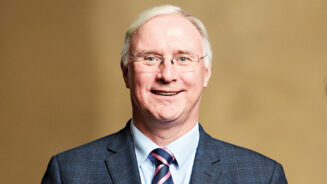The report, called ‘Driving the Conversation’, is aimed at giving consumer insights so that financial advisers strengthen the conversations they have with clients.
For many investors, the current environment of low historical interest rates and stubborn inflation has had a detrimental effect on the income they derive, it states. Inflation risk is just one of the challenges facing investors who have stuck with government bonds as the main source of yield.
BlackRock also explains that Government bonds such as German bunds and UK gilts are yielding at historical lows and well below inflation, but heavy buying of these bonds also presents significant duration risk. At current valuations, it would take a fairly small change in interest rates – say a rise of 25 basis points – to cause a price drop equivalent to losing a year’s income from these investments.
It is therefore critical for investors to look for ways to diversify their sources of income, the report states.
YouGov interviewing 2,400 people in this category aged between 25 and 75 across six countries.
- 55% call themselves risk averse and unwilling to take any risks with their money
- 45% said they prefer to invest for the short term
- 35% are saving more in cash or deposit accounts than a year ago
- 85% of mass affluent investors hold cash, with those in the UK holding more than their European counterparts – the UK average amount of savings in cash is £36,966.
Alex Hoctor Duncan, head of EMEA retail at BlackRock, said: "For some investors, the stark contrast between their longer-term financial goals and their current positioning requires them to think and invest differently, to see how emotions may be holding them back from taking the best and most objective course of action. This should be a key subject for advisers, helping investors to understand the impact of their emotions on investment choices."
A worrying 25% have not yet started planning for their retirement, while 30% are not confident that they will achieve the level of income they want in retirement.
In Europe, life expectancy for 65-year-olds is well above 15 years, and the ratio of retirees to working-age adults is now around one retiree for every four people of working age across the European Union.
Nearly half of the retirees surveyed said they would have done something different knowing what they now know about retirement. The report revealed here that:
- four in ten retirees would have started their own pension earlier
- one in four would have adopted a more aggressive approach to their investments
- one in three would have continued to work for longer
This report involved YouGov interviewing 2,400 people in the mass afflluent category aged between 25 and 75 across six countries.
To read about which countries have are the least and best prepared for retirement, click here.




